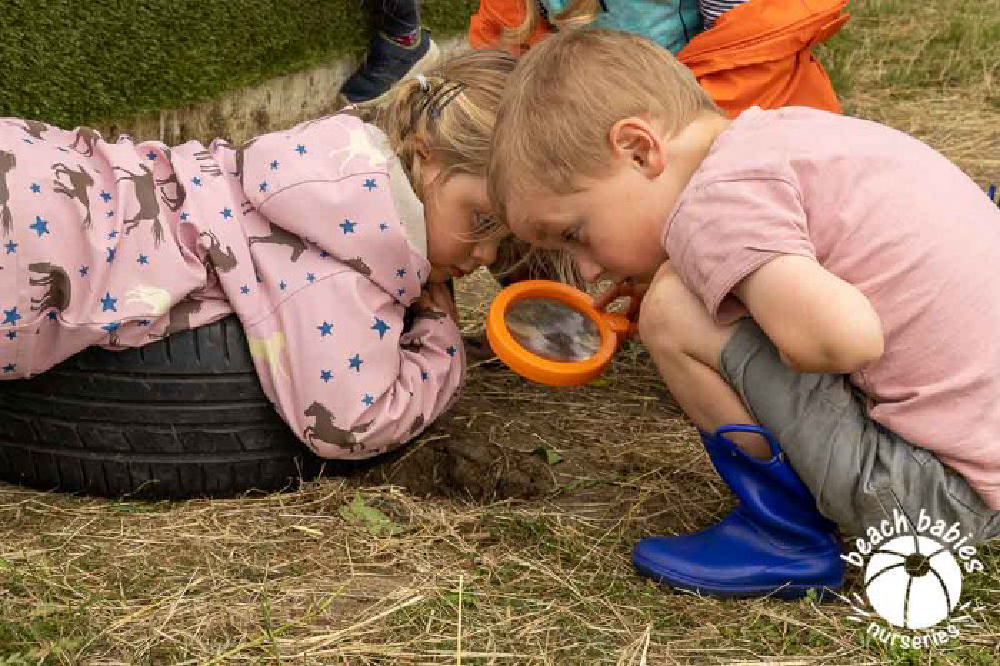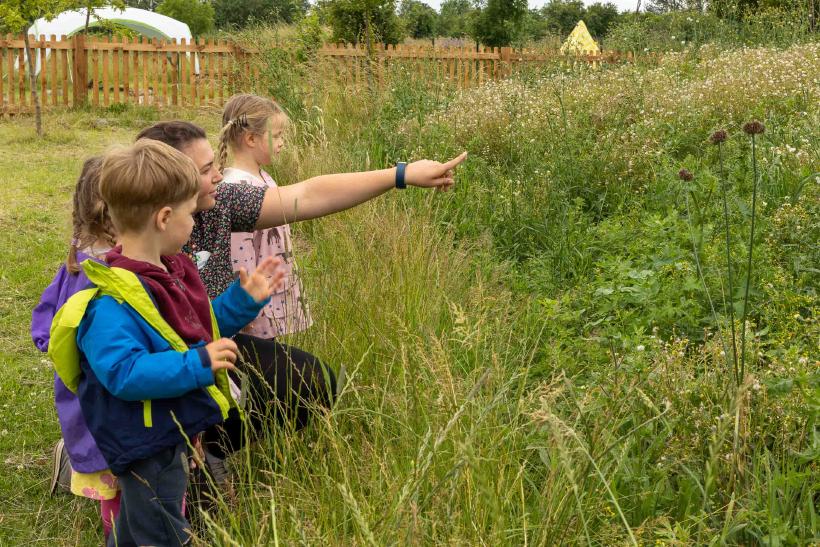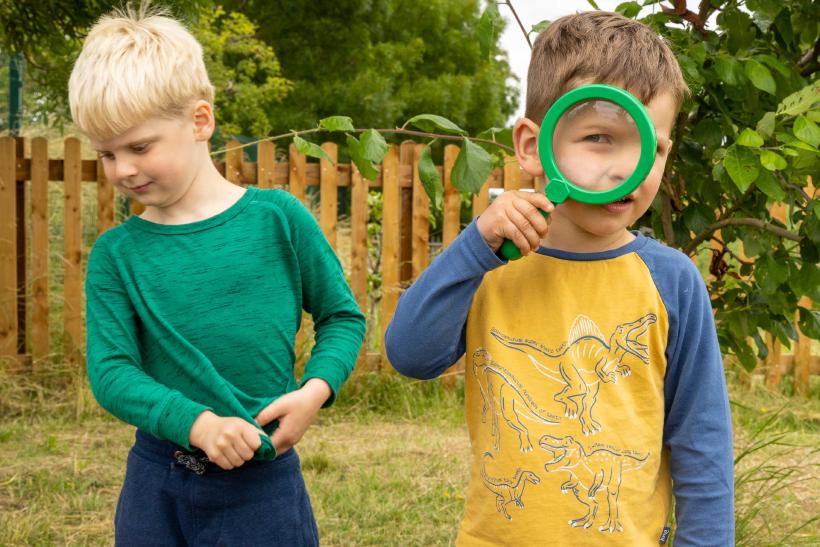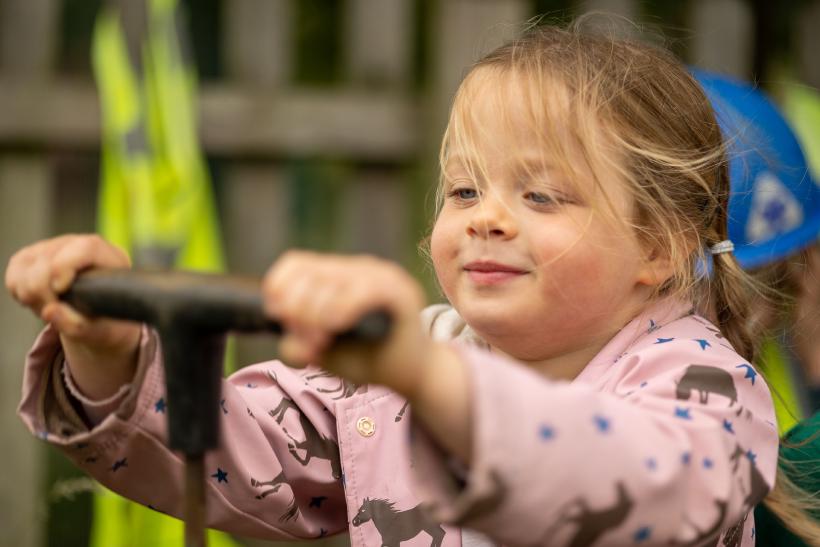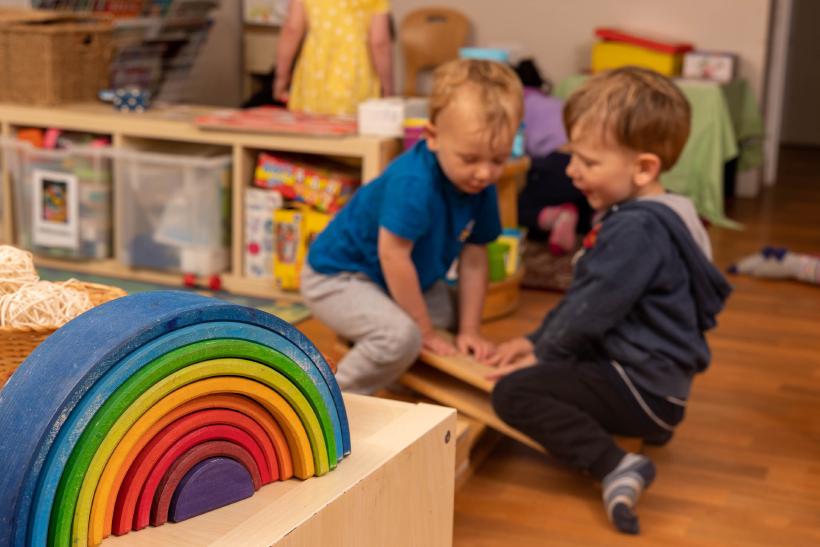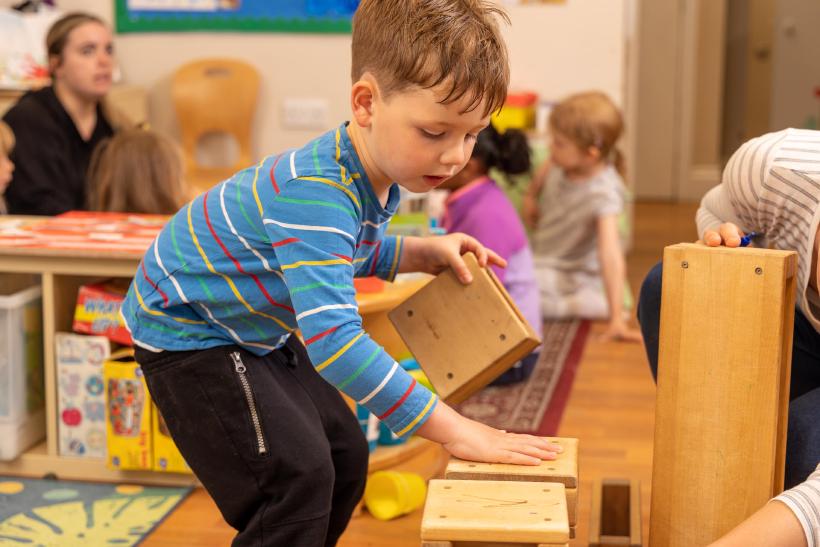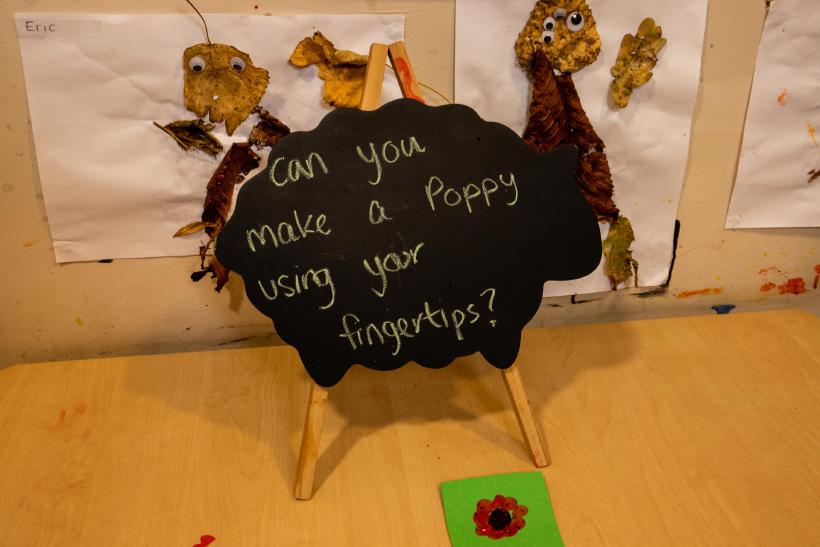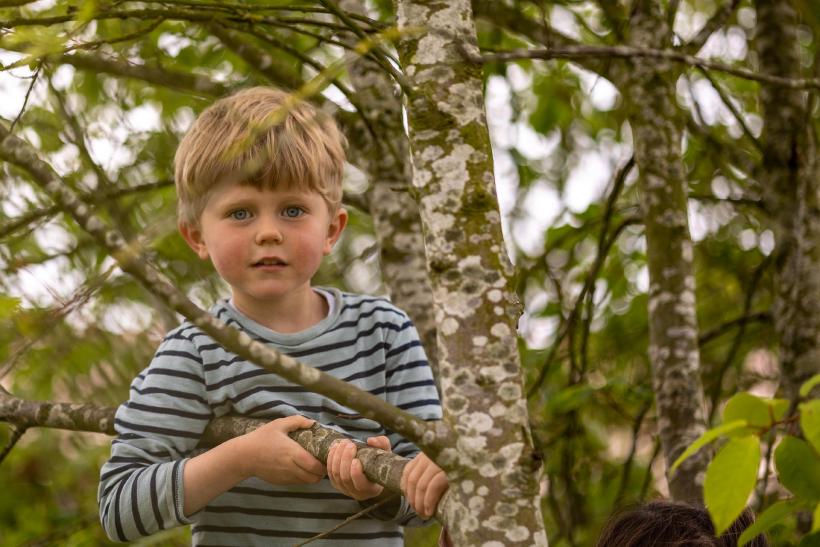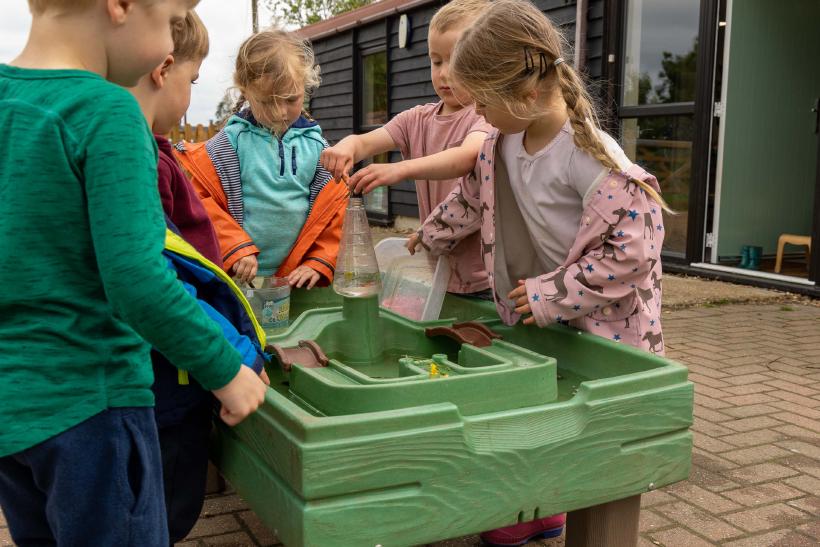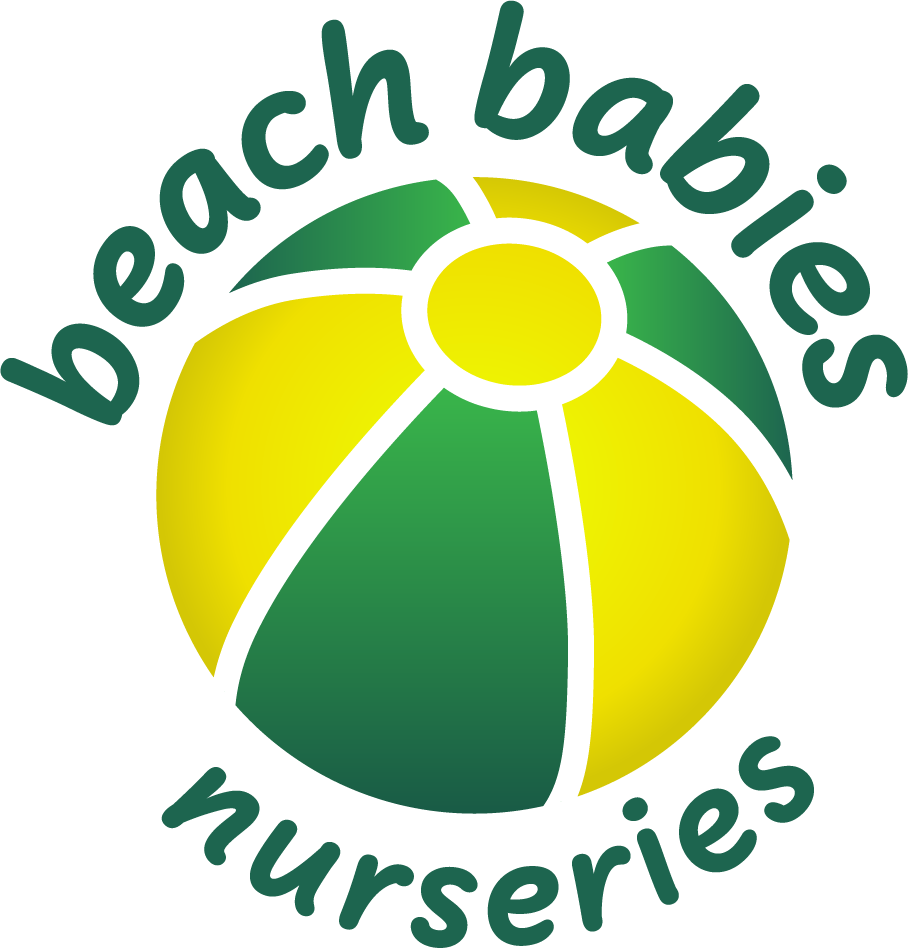We at Beach Babies have always believed that children in our care are supported by us, allowing them to ‘grow up naturally’. We believe that a child who is enabled to grow up in a natural environment, who are themselves nurtured, and who experience the natural world every day, in every season know it and will care for it more.
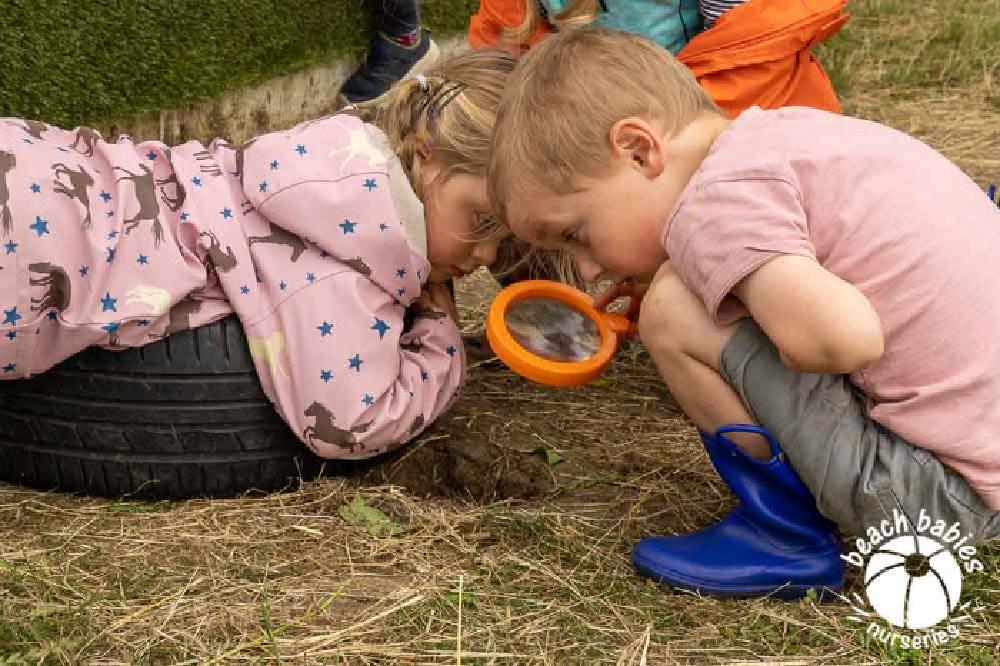
As a part of our renewed curriculum, one of the four areas we have identified as a foundation to all that we do is Caring for Our World; for children to know how to look after the world around them and all that is in it. As a setting, we have always placed a huge emphasis on fostering positive relationships between the children and their natural environment. We incorporate this message through a variety of teaching projects, play and learning opportunities. We are so excited to share with you how we already promote this message within the setting, but how we plan to develop it even further.
Why now?
World leaders have recently gathered at the COP26 UN Climate Change conference, what better time to remind ourselves of the efforts we make, and what more we can do to provide the children we care for with both knowledge of and a sense of responsibility towards our planet.
Over the years we have enjoyed participating in many environmental and wildlife initiatives, and this has become commonplace in our practice and care. But as the world looked to Glasgow and the UN meeting to discuss the climate crisis in its entire enormity, we too must all play our part. Our part is one we are so proud to undertake; to simply guide the children in our care towards looking after the world around them. To teach them about sustainability, renewable energy, Reduce-Reuse-Recycle, food waste, littering, self-sufficiency, the oceans, the rainforest, our waterways and local wildlife and habitats.
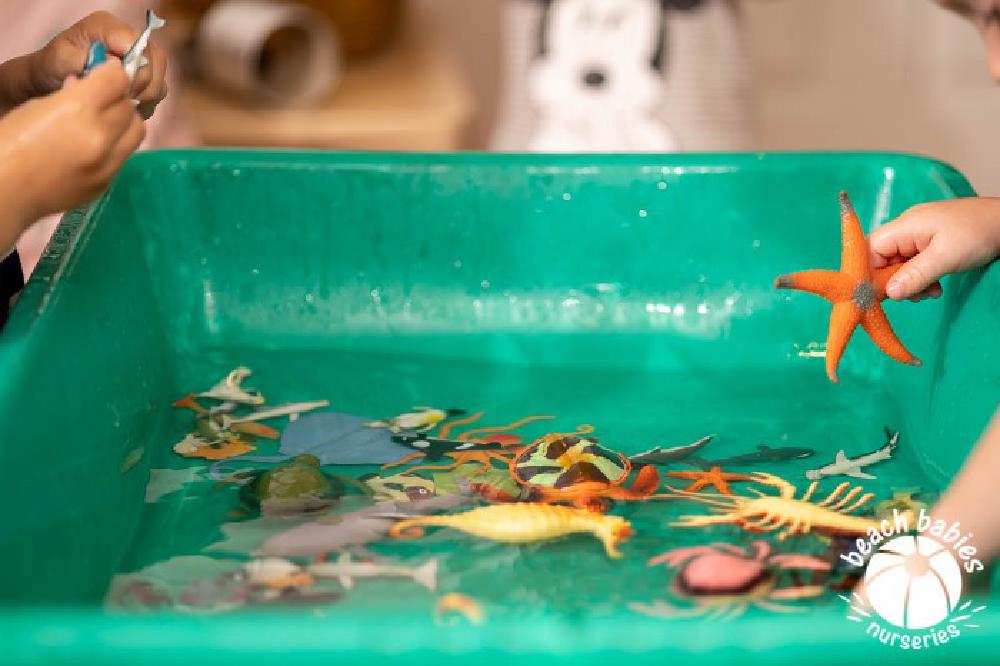
What do we already do?
Ask any Beach Babies parent what their child enjoys most about their time at nursery and the majority will tell you the outdoor space. We pride ourselves on having large, natural outdoor environments for the children to spend a large percentage of their time. The outdoors is seen as the third educator and we recognise just how crucial it is in order to influence all that we do at Beach Babies.
Since our beginning, we have adopted much of what is referred to as forest school practice into our own. We are influenced by the principles of forest schools and for many years we have enjoyed taking part in environmental initiatives such as the RSPB big garden bird watch, The Big Butterfly Count, The Wildlife Trusts 30 Days Wild and Outdoor Classroom Day. We strive to bring knowledgeable, outside influence into the nursery, hosting visitors such as Amey-Cespa recycling educators, local beekeepers, farmers and gardeners. These and many more are examples of our practice that we look forward to each year as well as developing further as our new curriculum progresses.
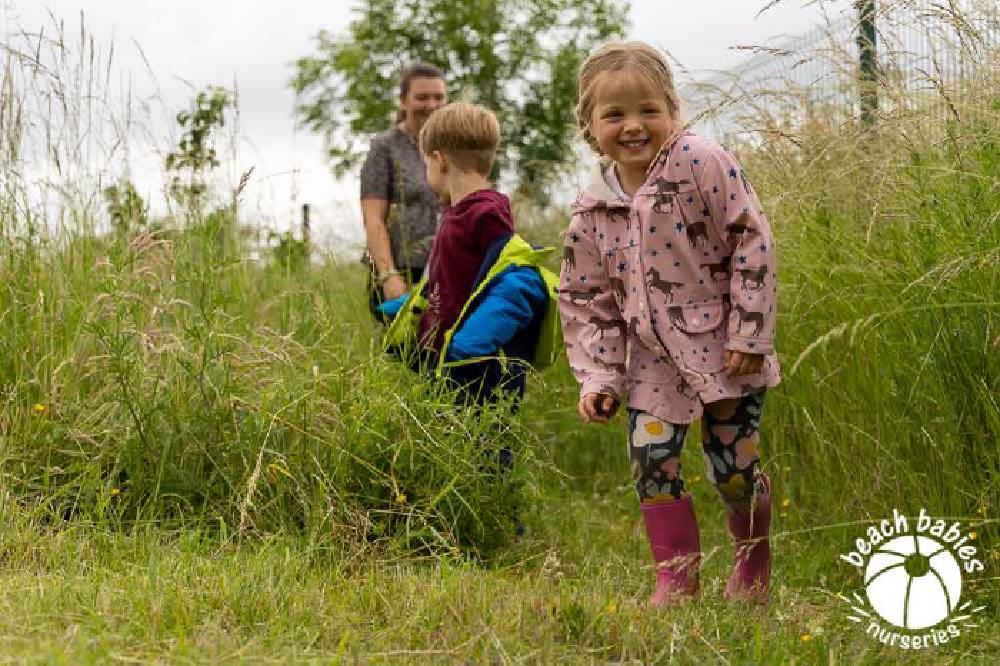
What next?
For several years the umbrella top for our curriculum has been “The Season.” We regularly use the season to influence the experiences that we plan to offer the children. We immerse the children in the changing environment and place importance on noticing the details, natural resources and changes in their surroundings, encompassing all other areas of learning as we do so. This was why, when it came to deciding on key principles for our curriculum, it was inherent that the natural world was an identified area; it is fundamental in all that we do.
We plan to extend our practice, developing our lessons on self-sufficiency and maximising our spaces to provide dedicated areas for growing more fruit and vegetables. Regular green finger sessions will teach the children how to grow, care for and harvest their own plants and crops.
We will plant more trees, learning all about the benefits of doing so. We will build, create and provide more homes for wildlife; bug hotels, bird and bat boxes, hedgehog homes and wildflower meadows.
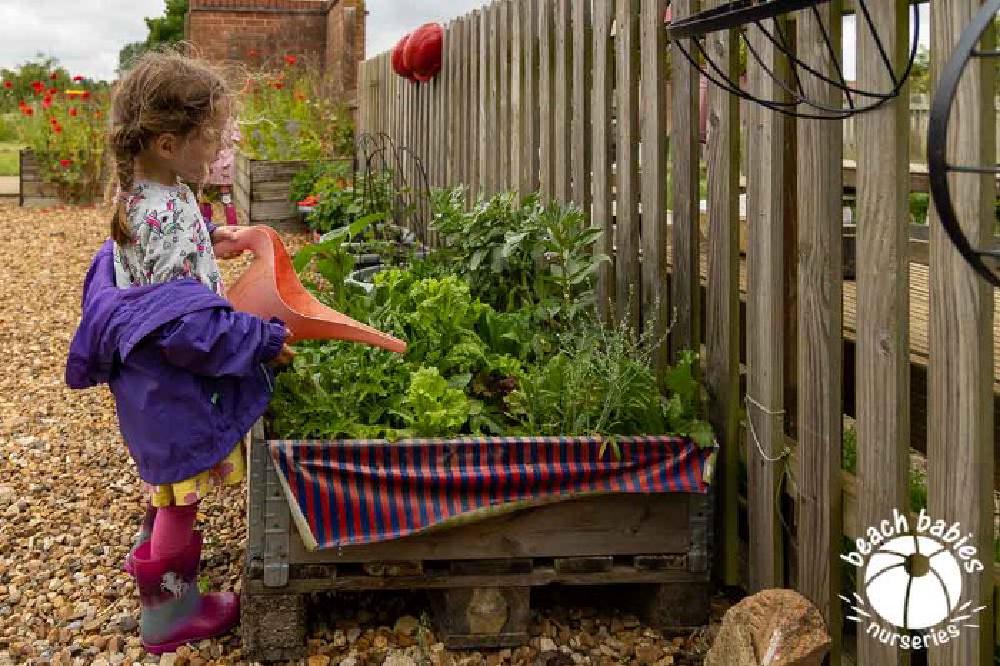
The children will become recycling warriors- sorting the nursery waste into the correct bins and gaining more understanding of how and why we do this. And we will minimise our consumption of key resources such as heat and water and learn the lessons of why this is important.
As our settings grow and develop we will also include the use of solar power and battery storage. We will be buying an electric people carrier to allow us to take the children into the community more.
We teach and support the children to conserve energy and precious resources; turning the tap off in between washing hands, using only 1 or 2 paper towels and one squirt of soap from the dispenser! It is vital that we all realise that resources are finite and take care to use them wisely.
We have always filled our nurseries with wooden, open-ended and natural resources and this continues as we realise that longevity and sustainability are so important. We love observing the children imagine, create and repurpose with what may be deemed by some as “junk”- so when you hear us or your child talk about loose parts play, just know that they have been busy engineering and creating whilst saving items going to landfill at the same time!
We are also taking the easy wins, no longer using glitter in our settings and continuing our love for natural resources through the artistic and creative activities we provide as much as possible.
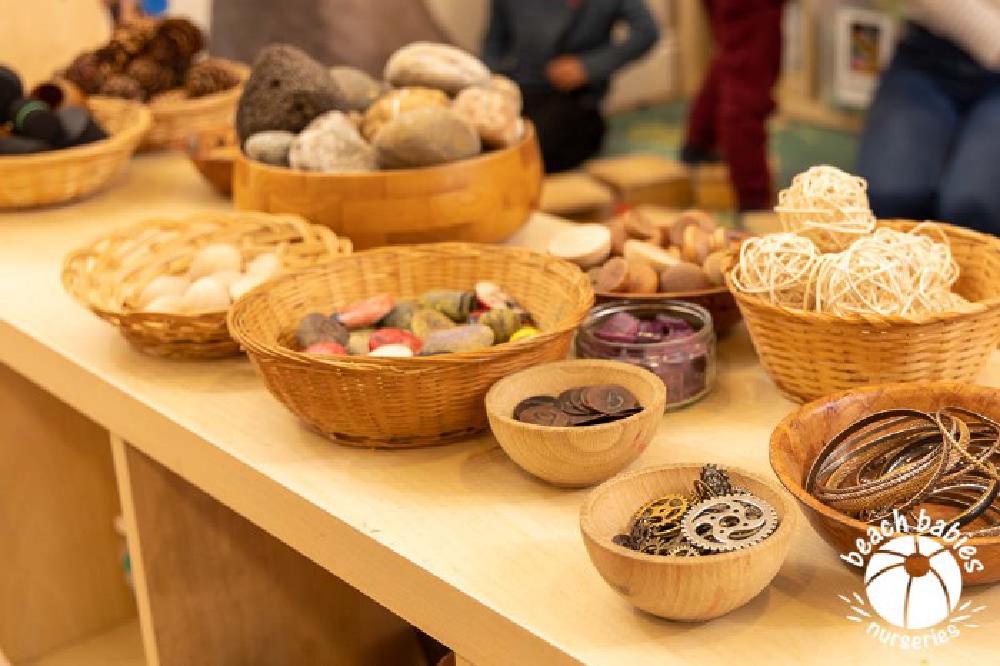
Where to begin?
While we cannot single-handedly make the world change its ways, we all know that it is the little things that we can all do that make the world of difference. Making these little changes across our day-to-day lives really is all it will take for our children to grow up conscious of their decisions, and their ability to have a positive impact on the planet. With that being said it can be overwhelming knowing just where to start, particularly when initiating conversations with young children.
We have an equal passion for children’s literature and use this as a tool to begin these projects with the children. Often these allow us a gentle introduction to these global issues. Below are a few examples of books that we have regularly shared, in order to initiate meaningful conversations and learning times as well as a prompt for taking action in our own way.
-
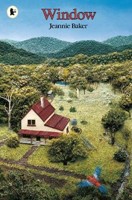
Window by Jeannie Baker - This is just one of Jeannie Bakers artistic masterpieces on environmental issues. This wordless picture book is fantastic at starting the conversations around urban growth, habitat loss and deforestation. One of our all-time favourites.
-
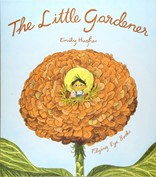
The Little Gardener by Emily Hughes - a wonderfully detailed illustrated picture book, which helps to start a conversation on how working together, taking just the littlest of steps, adds up to one bigger picture of positive change.
-
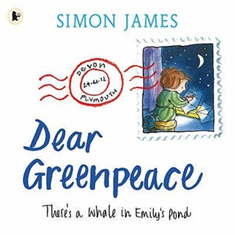
Dear Greenpeace by Simon James - This classic, of the story of Emily’s whale in ‘Dear Greenpeace’, seems especially poignant these days as we all become more aware of just how much waste pollutes the oceans. A great story to get even the youngest of readers thinking about caring for the planet.
-
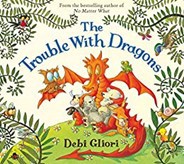
The Trouble With Dragons by Debi Gliori - in this book the world is full of beastly dragons that chop down trees, fill the air with smoke, gobble up all the food and make the oceans filthy. A powerful message portraying all of the issues we face through climate change, yet told through rich illustrations and a child accessible way.
-
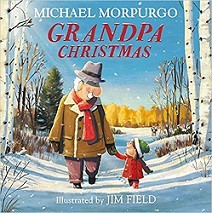
Grandpa Christmas by Michael Morpurgo — a beautiful feel-good Christmas book portraying a hopeful message for anyone who cares about the future of our planet.
You don’t necessarily have to raise the next Greta Thunberg or young David Attenborough, but their messages are more crucial to teach the next generation than ever before. It has always been key to our ethos at Babies Babies to inspire children about the world that we live in. Now we must take on greater responsibility in educating and guiding them into looking after it as best as we all can.
By Emma Morrice, Teacher
